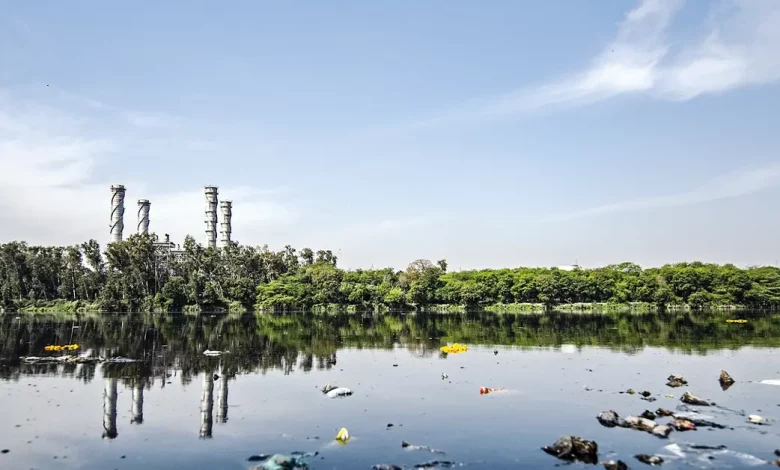Daily Current Affairs for UPSC
Water (Prevention and Control of Pollution) Amendment Bill, 2024
Syllabus- Conservation (GS Paper-3)

Context- Recently, the Water (Prevention and Control of Pollution) Amendment Bill, 2024 was introduced in the Rajya Sabha with an aim to amend the Water (Prevention and Control of Pollution) Act, 1974.
Key Features of the Bill
- Appointment of Adjudication Officers: The bill proposes the appointment of an ‘adjudication officer’ who will determine on the penalty in instances of environmental violations.
- Uniformity in appointment of Chairman of SPCBs: The 1974 Act states the Chairman of the State Pollution Control Board changed into nominated by means of the State government, to which the Bill adds ‘in the sort of manner as may be prescribed by means of the Central Government’.
- Applicability: The Bill would be relevant to Himachal Pradesh and Rajasthan, and some other kingdom that passes a resolution under the Water (Prevention and Control of Pollution) Act, 1974.
- Decriminalisation of Minor Offences: The bill aims to decriminalise the present provisions of the Water (Prevention and Control of Pollution) Act, 1974, which means that instead of imprisonment, violators would be required to pay a fine.
- Changes in Punishment: The 1974 Act currently prescribes imprisonment of up to a few months for now not informing the State Board about abstraction of water from a flow or properly in a giant volume and no longer offering statistics about creation, set up, or operation of disposal systems.
- The Bill amends it to a fine between Rs 10,000 and Rs 15 lakh.
- Exemption for Certain Industrial Units: The Bill permits the Centre to ‘exempt certain categories of industrial plants’ from the regulations on new outlets and discharges.
- Guidelines for Grant and Establishment of Industries: The Bill additionally permits the Centre to ‘issue guidelines’ on subjects relating to grant, establishment of any industry, etc.
Water Pollution: A Growing Concern
-
- Water pollution is a pressing difficulty that poses tremendous threats to the environment and human fitness. It takes place when dangerous materials, frequently because of human activities, enter water bodies and degrade the quality of water.
- Causes
-
- The primary purpose of water pollution is the release of waste from urban areas, which account for 70% of India’s water pollution.
- These wastes, frequently untreated because of inadequate infrastructure, end up in rivers and different water bodies.
- Industrialization and increasing urbanisation have exacerbated the state of affairs, creating big factor assets of it.
- Heavy metals are any other big supply of water pollution. They contaminate India’s rivers, posing intense health dangers.
- The Central Pollution Control Board (CPCB) diagnosed 351 polluted river stretches in India, with Maharashtra having the highest range of polluted rivers.
Impact on Health and Environment
- Pollution has intense influences on both human health and the environment. In 2019, pollution resulted in greater than 23 lakh premature deaths in India, the highest within the world.
- The majority of these deaths had been due to air pollution, however water pollution also contributed drastically.
- Water pollution impacts the environment by degrading freshwater resources and ecosystems.
- This degradation increases the vulnerability of small-scale producers to climate shocks and land degradation in a number of the arena’s maximum fragile ecosystems.
Measures to Control
- The Indian government has implemented various Acts and guidelines to manipulate water pollution.
- The Water (Prevention & Control of Pollution) Act and the Environment (Protection) Rules, 1986, goal to prevent pollution in water bodies.
- However, powerful implementation and enforcement of these laws continue to be a mission.
- CPCB performs functions as laid down below the Water (Prevention & Control of Pollution) Act, 1974, and the Air (Prevention and Control of Pollution) Act, 1981.
Conclusion
- Water pollution is a grave issue that needs immediate attention. While legal guidelines and regulations are in region, their effective implementation is essential. Moreover, there is a need for increased awareness and individual responsibility towards the conservation and protection of our water bodies.
Source: Indian Express





.png)



